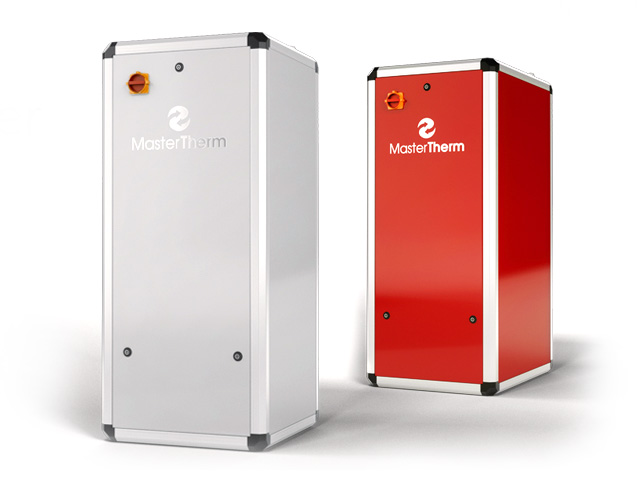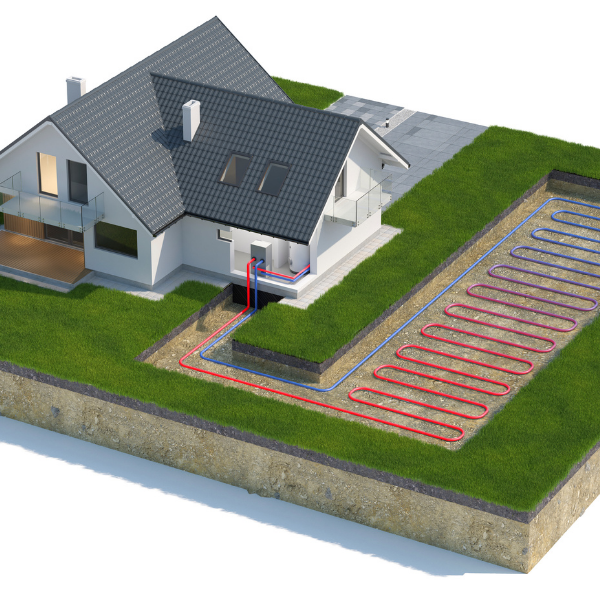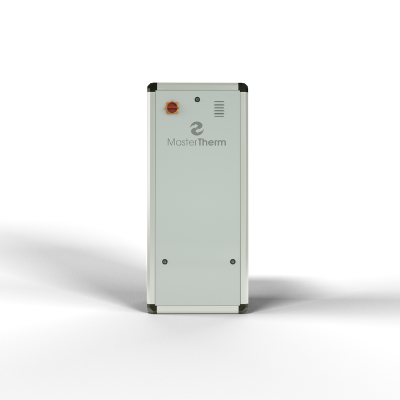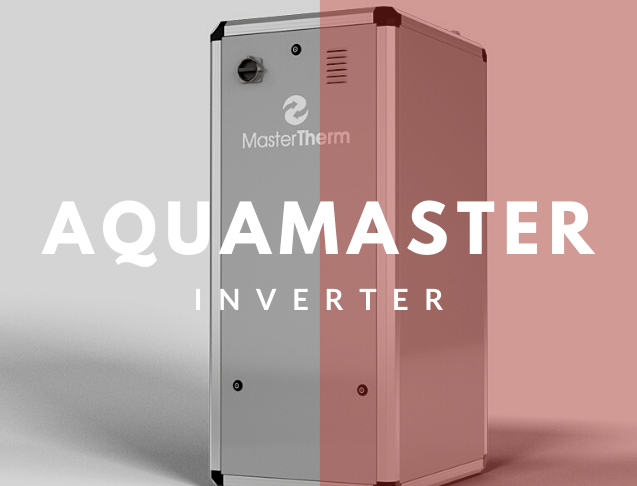What is a ground source heat pump?
Ground source heat pumps (GSHPs) offer a highly efficient form of renewable energy and they can be used in residential properties or commercial buildings of almost any size or design. GSHPs are typically installed inside a property or in an external plant room, they're connected to a series of pipes called ground collectors which are buried in the earth outside. The ground collectors can be installed horizontally in trenches around 1.5 metres deep, or in boreholes around 100 metres deep. The heat pumps extract thermal energy from the ground to provide year-round heating, cooling and hot water.


How does a ground source heat pump work?
GSHPs are installed indoors and powered by electricity making them clean and combustion free. The heat pump is connected to a series of pipes (ground collectors) laid in the ground outside the property, the ground collectors can be installed in horizontal trenches or vertical boreholes. The collectors circulate a fluid which absorbs the thermal energy from the ground which maintains a consistent 10-12°C temperature all year round. The fluid is then passed through a compressor which increases the temperature to a usable level before reaching a heat exchanger that transfers the heat to the distribution system including radiators, underfloor heating and hot water cylinders.
MasterTherm heat pumps offer an intelligent automated heating system and integration with time of use electricity tariffs. All you need to do is set your preferred temperature once and your MasterTherm system will automatically optimise toward delivering your preferences as efficiently as possible whilst taking into account weather forecasts and the price of electricity to provide maximum comfort and additional savings of up to 35% on your energy bill - on top of the already low cost of running a heat pump.
The Benefits of a Ground Source Heat Pump
- A more environmentally-friendly heating system with excellent year-round efficiency
- Reduces your monthly energy bill
- Clean and combustion free
- Specially insulated for quiet operation
- Functionality to also provide passive and active cooling
- Suitable for buildings of all sizes from residential to commercial
- Works with a variety of heat distribution systems including underfloor heating, radiators and fan coil units
- Requires minimal maintenance and has a long lifespan of around 25 years
- No need for fuel cards or fuel deliveries
- Receive government financial benefits such as the Renewable Heat Incentive

Our AquaMaster Inverter Water/Ground Source Heat Pump
With its robust design and outstanding efficiencies, our AquaMaster Inverter offers state of the art performance levels which can be applied to use in residential and commercial buildings of any size or design. Equipped with weather compensation, solar thermal integration and the ability to offer simultaneous heating and cooling, it uses intelligent zone control and automatic optimisation to deliver year-round comfort. Available for both ground source and water source projects.
FAQs About Ground Source Heat Pumps
















